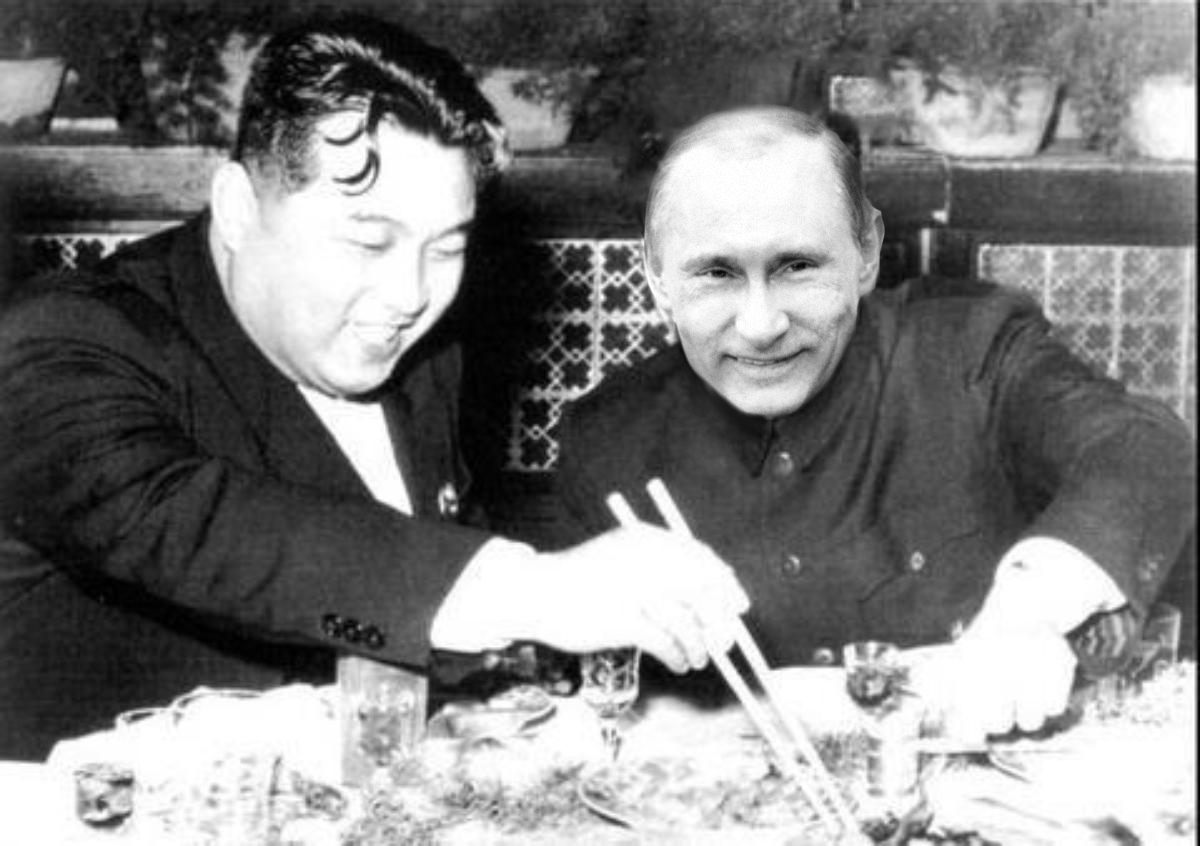
Russia and North Korea have a complicated relationship. Illustration by Yaroslav Cohen (The image has been modified)
A few days before North Korea's launch of a rocket carrying an artificial satellite, on Feb. 7, the Russian Foreign Ministry expressed "concern" over the Pyongyang’s plans to conduct such tests.
Compared to the statements of Japan, which threatened to shoot down the rocket carrier, or South Korea, whose defense minister ordered troops to “actively” respond to the launch, Russia's reaction seemed restrained.
“The absence of a strong reaction on the part of Russia and China to the reports on the impending launch could have been interpreted by Pyongyang as a sign that it would get away with further action, too,” says Konstantin Asmolov, a leading researcher at the Center for Korean Studies at the Russian Academy of Sciences.
As soon as the launch took place, Moscow strongly condemned the move and advised Pyongyang to ponder whether its policy to oppose the international community is in the interests of the country.
However, experts do not expect more serious consequences.
“I do not think that Russia will agree to strengthen the sanctions, exert sharp pressure and isolate North Korea in connection with this launch,” says Georgy Toloraya, research director of the Center for the Study of Modern Korea at the Russian Academy of Sciences.
As experts in Korean Studies interviewed by RBTH believe, Moscow has no serious tools to put pressure on North Korea to ensure that Kim Jong-un's regime ceases to implement its missile and nuclear program.
“Russia is not at all alone in this,” says Andrei Lankov, professor at the Kookmin University in Seoul. “The events of the last few decades have shown that it is almost impossible to seriously influence Pyongyang. Perhaps only China, in theory, now has such opportunities.”
According to Lankov, other nations can only “bargain” with North Korea by offering some economic or political concessions as a reward for Pyongyang's behavior. At the same time, Lankov says, there is no guarantee that North Korea would be interested in accepting such “awards.”
Georgy Toloraya is sure that the North Korean authorities consider Moscow as an alternative to Pyongyang's main partner – Beijing.
“Kim Jong-un does not want to depend on China, and this requires an alternative. That's where the Russian card is being played,” he says.
To date, China remains the key trading partner of North Korea (controlling up to one third of the foreign trade turnover of the country) as well as its main source of humanitarian aid and investment. However, relations between the two East Asian countries leave much to be desired.
Experts say that Pyongyang's aggressive rhetoric and nuclear tests irritate Beijing as well, but North Korea is not going to abandon its policy.
“There is a desire (on the part of China) to shorten the leash and make the North more obedient,” says Konstantin Asmolov. “It is largely due to this that Pyongyang is trying not to depend on China fully and strengthens its relations with Russia.”
Since the first visit of Russian President Putin to North Korea in 2000, political contacts between the two countries have intensified and some cooperation agreements have been signed.
Periodically, Russia provides North Korea with humanitarian aid, and, in spite of the condemnation of its nuclear and missile programs, opposes tougher international sanctions.
“The DPRK has a better attitude to Russia than to China, it fears it less, it is ready to deal with it,” says Georgy Toloraya. “A major role in this was played by debt relief (in May 2014, Russia forgave 90 percent of North Korea's external debt).”
At the same time, the bilateral relations lack an economic base.
“In practice, trade and economic cooperation between the DPRK and Russia does not effectively exist,” Andrei Lankov says. He attributes this to the economic set-ups of the two countries.
“Russia simply do not need what the DPRK sells in the world market (except, perhaps, cheap labor),” Lankov adds. “North Korea, however, does not mind buying some Russian goods. But the North Koreans have no money to pay an adequate price for them.”
All rights reserved by Rossiyskaya Gazeta.
Subscribe
to our newsletter!
Get the week's best stories straight to your inbox